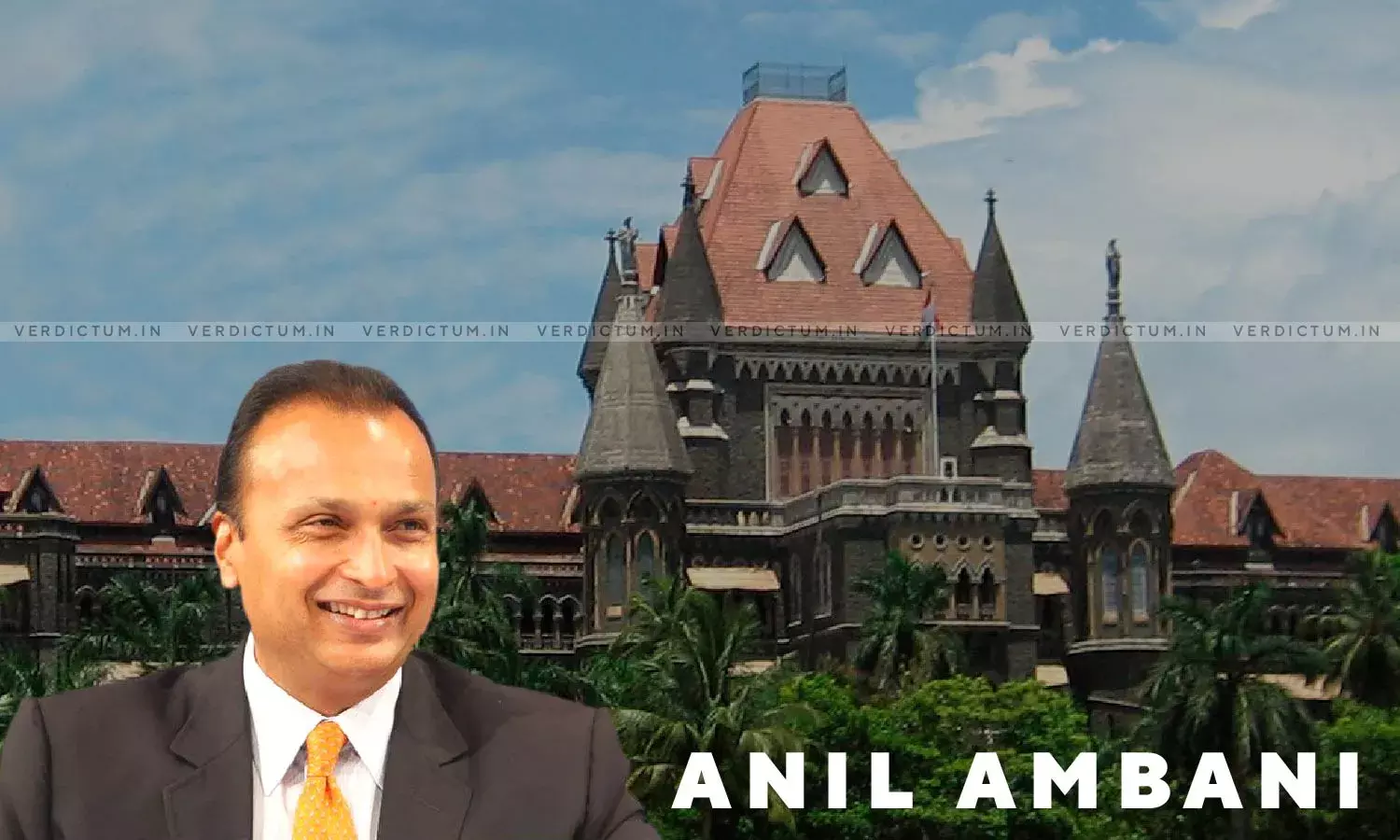Bombay High Court Issues Notice On Anil Ambani’s Plea Against Retrospective Application Of Black Money Act

Bombay High Court, Anil Ambani
The Bombay High Court on Monday questioned the Income Tax department's move seeking to prosecute Reliance ADAG chairman Anil Ambani under the Black Money Act for alleged tax evasion, and asked how Acts criminalising certain action can have a retrospective effect.
A division bench of Justice Gautam Patel and Justice S G Dige, while hearing a petition by Ambani challenging a show cause notice issued to him by the I-T department, asked how a person conducting himself or herself in a certain manner will know what the government is going to do in future.
The high court posted the matter for hearing on February 20 and extended its September 2022 order directing the I-T department to not take any coercive action against Ambani till then.
Senior Advocate Ravi Kadam appeared for Ambani whereas Advocate Akhileshwar Sharma appeared for Union of India.
The I-T department had issued a notice to Ambani on August 8, 2022, for allegedly evading Rs 420 crore in taxes on undisclosed funds worth more than Rs 814 crore held in two Swiss bank accounts.
As per the department's notice, Ambani was liable to be prosecuted under Sections 50 and 51 of the Black Money (undisclosed foreign income and assets) Imposition of Tax Act of 2015, which stipulates a maximum punishment of 10 years imprisonment with a fine.
The department has charged Ambani (63) with "wilful" evasion, saying he "intentionally" did not disclose his foreign bank account details and financial interests to Indian tax authorities.
Ambani in his petition claimed the Black Money Act was enacted in 2015 and the alleged transactions are of assessment years 2006-2007 and 2010-2011.
During the brief hearing on Monday, the bench questioned how the government can frame Acts criminalising certain actions with retrospective effect.
"A person behaves in a certain manner...then you (government) criminalise it with retrospective effect. How does a person then conduct himself or herself," Justice Patel said.
"You can say that henceforth a person cannot do this action...that is fine...but how can it have a retrospective effect? You can lay down a time period from which the particular action is an offence," he said.
The bench gave an example, saying if a person has been buying books and claiming deductions on the same, and then one day the government says such deductions cannot be claimed and that it is a criminal offence.
"How can you say that since this person claimed (deductions) in the past it is a crime now? How can a person know what you (government) are going to do ten years from now? This is the most simple and absurd example I can give," Justice Patel said.
The bench while adjourning the plea issued a notice to the Attorney General of India as Ambani's petition has challenged the constitutional validity of the Black Money Act.
The court also permitted Ambani to file his rejoinder to the affidavit filed on Monday by the Income Tax department.
According to the I-T notice, Ambani was an "economic contributor as well as beneficial owner" of a Bahamas-based entity called Diamond Trust' and another company called Northern Atlantic Trading Unlimited (NATU) which was incorporated in the British Virgin Islands (BVI).
The I-T department alleged that Ambani "failed to disclose" these foreign assets in his income tax return (ITR) filings and hence contravened provisions of the Black Money Act, brought by the Narendra Modi government soon after it was first elected to power in 2014.
The total value of the undisclosed funds in the two accounts has been assessed by tax officials at Rs 814 crore and tax payable on this amount at Rs 420 crore.
Cause Title- Anil Dhirajlal Ambani v. Union of India & Ors
Click here to read/download Order
With PTI Inputs

